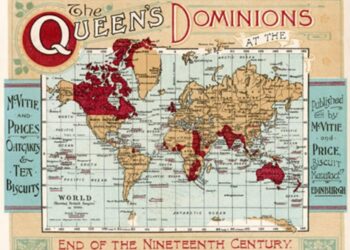The Power of Indian Literature on the Global Stage
Indian literature has long been a source of cultural richness and intellectual depth, offering readers both within and outside the subcontinent a glimpse into its diverse society, complex histories, and vibrant traditions. From ancient texts like the Mahabharata and Ramayana to contemporary works of fiction, Indian authors have created masterpieces that transcend national borders, languages, and time periods. These books have found favor among global readers, particularly the vast Indian diaspora, which continues to build bridges between cultures and communities across the world.
As a result, Indian literature is no longer confined to its native land; it has woven itself into the fabric of global reading culture. This article explores some of the must-read Indian books that have earned global recognition and captivated readers in the global diaspora, highlighting their universal appeal and the ways in which they offer new perspectives on life, love, politics, and identity.
1. The God of Small Things by Arundhati Roy
No list of Indian books beloved by the global diaspora would be complete without mentioning Arundhati Roy’s The God of Small Things. Published in 1997, this Booker Prize-winning novel remains one of the most celebrated works in contemporary Indian literature. Set in the picturesque yet politically turbulent Kerala, the book weaves together family drama, forbidden love, and the complexities of caste and social hierarchy.
Roy’s lyrical prose and ability to capture the intricacies of human emotions resonate deeply with readers from all walks of life. The novel’s universal themes of love, loss, and societal constraints have made it a global literary phenomenon, further cementing Roy’s place as one of India’s most acclaimed authors.

2. Midnight’s Children by Salman Rushdie
Salman Rushdie’s Midnight’s Children is a seminal work of Indian-English literature that continues to captivate readers worldwide. Published in 1981, it won the Booker Prize and the Booker of Bookers in 2008, making it one of the most important and widely read books from the Indian subcontinent.
The novel tells the story of Saleem Sinai, born at the exact moment India gained independence, and traces his life and the country’s political history through magical realism. It addresses themes of identity, nationhood, and the post-colonial experience, making it highly relatable to readers both within the Indian diaspora and those interested in the impact of colonialism on global societies.
3. The White Tiger by Aravind Adiga
Winner of the 2008 Man Booker Prize, The White Tiger by Aravind Adiga is a gripping and satirical novel that critiques India’s socio-economic structure through the eyes of its protagonist, Balram Halwai. A rags-to-riches story, the novel explores the complex dynamics of class, corruption, and power in modern India.
What sets this book apart is its unapologetic tone and raw depiction of the realities faced by those who struggle to survive in a deeply divided society. Its exploration of individual agency and moral ambiguity has made it a favorite among readers across the globe, particularly in diaspora communities seeking to understand the socio-political landscape of contemporary India.
4. Shantaram by Gregory David Roberts
Although written by an Australian author, Gregory David Roberts’ Shantaram has found a special place in the hearts of the global Indian diaspora. The novel is a semi-autobiographical tale of an Australian fugitive who escapes to Bombay (now Mumbai) and becomes involved in the city’s underworld. Its vivid descriptions of life in India, combined with a compelling narrative of redemption, love, and survival, have resonated with readers around the world.
The story not only captures the essence of India’s bustling cities but also delves into the complexities of human relationships and the search for meaning in life. Its themes of transformation and the clash of cultures have made it a widely-read and discussed book within the Indian diaspora.
5. The Inheritance of Loss by Kiran Desai
Kiran Desai’s The Inheritance of Loss is a deeply moving novel that explores the themes of immigration, cultural assimilation, and post-colonial identity. The book, which won the 2006 Booker Prize, is set in the remote foothills of the Himalayas and follows a group of characters who are grappling with their own sense of loss and displacement.
Desai’s eloquent prose and insightful exploration of the immigrant experience, particularly for those from the Indian diaspora, have made this novel resonate with readers worldwide. The novel’s themes of belonging and exile speak to a universal audience, making it an important work in global literature.
6. The Namesake by Jhumpa Lahiri
Jhumpa Lahiri’s The Namesake is another must-read for anyone interested in the Indian diaspora’s experience. The novel tells the story of Gogol Ganguli, a first-generation Indian-American who struggles to reconcile his cultural heritage with his American identity. Lahiri’s sensitive portrayal of the immigrant experience, generational conflicts, and the search for personal identity has made the book a favorite among readers worldwide.
The book was also adapted into a film, further solidifying its popularity and reach. The Namesake is a poignant reminder of the challenges and triumphs of balancing multiple cultural identities, making it a must-read for those interested in the intersection of Indian and global cultures.
7. Interpreter of Maladies by Jhumpa Lahiri
Before The Namesake, Jhumpa Lahiri made her mark on the literary world with Interpreter of Maladies, a collection of short stories that won the Pulitzer Prize for Fiction in 2000. The book addresses the lives of Indian immigrants and their interactions with the broader world, dealing with themes of isolation, cultural dislocation, and the difficulty of communication.
Each story in the collection offers an intimate look at the lives of individuals struggling to make sense of their place in the world. Lahiri’s ability to capture the nuances of cross-cultural experiences has earned her a place among the most celebrated authors of the Indian diaspora.

8. The Palace of Illusions by Chitra Banerjee Divakaruni
For those interested in reimagining ancient Indian epics, The Palace of Illusions by Chitra Banerjee Divakaruni offers a fascinating retelling of the Mahabharata from the perspective of Panchaali, the fiery and complex wife of the Pandavas. Divakaruni’s lyrical prose and unique take on this age-old story bring fresh insight into the lives of the women who are often relegated to the background in traditional retellings.
This book has struck a chord with readers across the globe, particularly in the diaspora, for its feminist perspective on an ancient epic. By focusing on Panchaali’s inner struggles and her evolving relationship with the men around her, Divakaruni has created a modern classic that reimagines Indian mythology with universal themes of power, love, betrayal, and destiny.
8. A Fine Balance by Rohinton Mistry
Rohinton Mistry’s A Fine Balance is an epic novel set in post-independence India during the Emergency period (1975-1977), a time when the country was under political turmoil. The book weaves together the lives of four seemingly unrelated characters—an aristocratic woman, a beggar, a tailor, and his nephew—and tells the story of their struggles for survival in a harsh and unpredictable world.
Mistry’s portrayal of the human spirit, even in the face of unimaginable hardship, resonates with readers worldwide. The novel’s themes of friendship, survival, and resilience make it a compelling read for anyone familiar with political upheaval and the search for justice, particularly those who live in diaspora communities and reflect on the complexities of life in their homeland.
9. Clear Light of Day by Anita Desai
Anita Desai’s Clear Light of Day is a quietly powerful novel about family, memory, and the changing landscapes of Delhi. The book revolves around the Das family, their personal struggles, and their interactions with the broader socio-political changes in India during the partition. Desai’s writing is known for its emotional depth and psychological insight, making this novel a favorite among readers who appreciate introspective narratives and the exploration of individual identities within larger historical contexts.
The novel’s exploration of Indian family dynamics, sibling relationships, and the lingering effects of partition resonates strongly with the Indian diaspora, especially those who have migrated across generations and are forced to reconcile with their cultural roots.
10. Interpreter of Maladies by Jhumpa Lahiri
Another powerful work by Jhumpa Lahiri, Interpreter of Maladies won the Pulitzer Prize for Fiction in 2000 and helped cement her reputation as one of the leading voices in Indian-American literature. This collection of short stories explores themes of communication, isolation, and the immigrant experience, with many of the stories featuring Indian characters navigating life in both India and the United States. Lahiri’s ability to capture the subtle intricacies of relationships and identity makes this collection a must-read for those interested in the Indian diaspora experience.
The book’s nuanced portrayal of the emotional and psychological challenges faced by immigrants—especially the struggle for connection amidst cultural differences—resonates deeply with global readers. It has been celebrated for its introspective tone, universal themes, and Lahiri’s elegant prose, making it a favorite among readers across the world.
A Bridge Between Cultures
Indian literature continues to captivate readers across the globe, offering a window into the soul of a country that has a rich and diverse literary tradition. The books discussed here are just a glimpse of the vast literary landscape that has contributed significantly to global reading culture. For the Indian diaspora, these works offer not only a reflection of their own experiences but also a way to connect with their cultural roots. These stories transcend geographical boundaries, reminding us of the shared human experiences that bind us together, no matter where we are in the world.
Whether through complex family dynamics, post-colonial struggles, or the exploration of identity and belonging, Indian authors have created masterpieces that speak to the universal themes of love, loss, and survival. The global diaspora, with its vast network of readers, continues to play a crucial role in sharing these stories and ensuring that Indian literature remains an influential force in the world of books.










